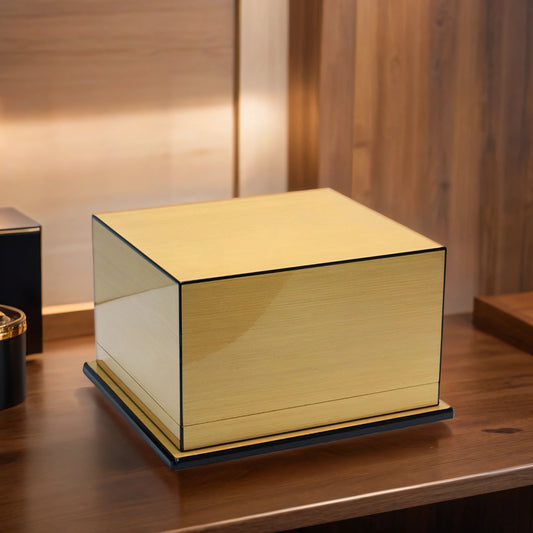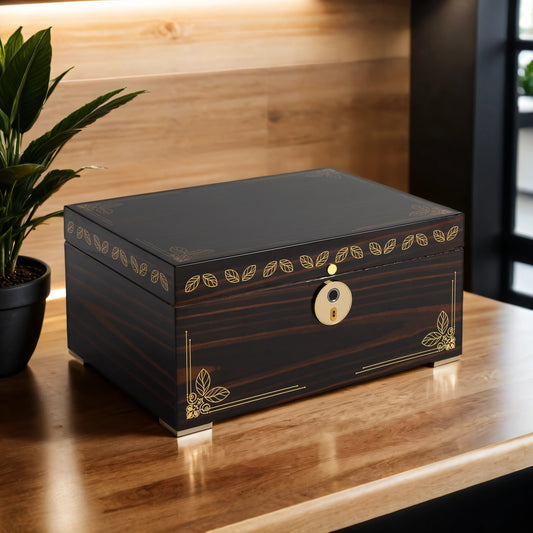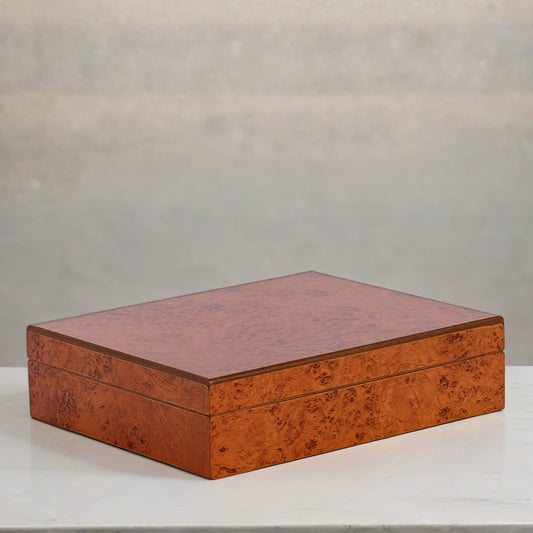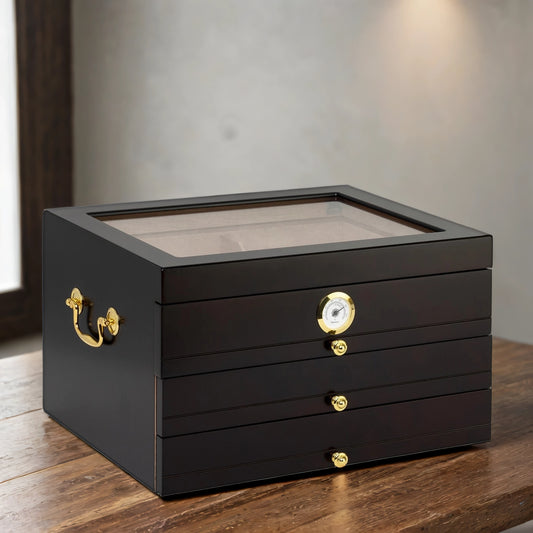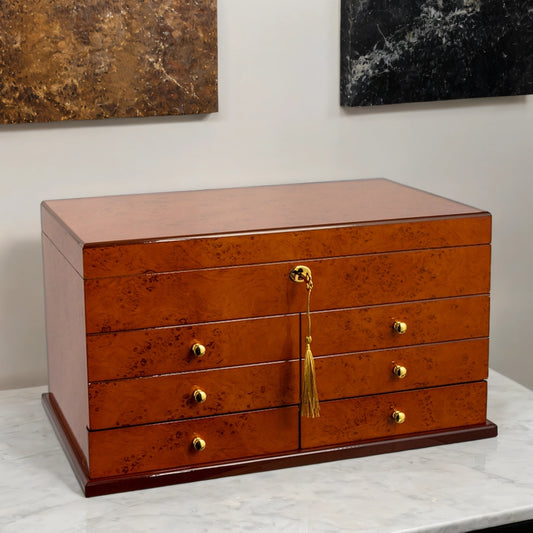
The History Of Cigars: When Were Cigars Invented?
Cigars were not invented at a single point in time. Instead, they evolved gradually, with the earliest known cigar-like smoking practices dating back to around 2500 BC. Ancient Mayan civilizations are believed to have been among the first to smoke rolled tobacco leaves, using them for both ritual and recreational purposes.
Cigars have a rich and storied history that spans centuries and continents. From the indigenous peoples of the Americas to the global industry we know today, the evolution of cigars is a tale of cultural exchange, economic shifts, and enduring traditions. This article breaks down the history of cigars into distinct periods, providing a comprehensive overview of their journey through time.
When Were Cigars Invented?
The history of cigars begins long before European explorers arrived in the Americas. Indigenous peoples in the Caribbean, Central, and South America were smoking rudimentary cigars made of rolled tobacco leaves as early as 2500 BCE. The Mayans, in particular, were known to smoke tobacco wrapped in plantain leaves, a practice depicted in ancient pottery and temple carvings. They also made beverages from tobacco, which played a significant role in their culture. The term 'cigar' is believed to be derived from the Mayan word 'sicar,' which means to smoke rolled tobacco leaves.
As the Mayans migrated, they carried tobacco with them, spreading its use as far north as Canada and south to Chile. However, it is uncertain if they introduced their form of cigars to the Caribbean islands. Independent tobacco use likely developed in areas such as Hispaniola (modern-day Haiti and the Dominican Republic) and Cuba, contributing to the widespread cultivation and use of tobacco throughout the hemisphere.
The European Discovery: 1492
The year 1492 marks an important year in cigar history, as their “discovery” by Christopher Columbus facilitated their worldwide popularity. Christopher Columbus and his crew arrived in the New World and encountered the Taino people of Cuba smoking tobacco leaves. This practice fascinated the Europeans, and they took tobacco back to Europe, introducing it to the Old World. Jean Nicot, the French ambassador to Portugal, is credited with popularizing tobacco in France, from which the term "nicotine" is derived.
The Rise of Cuban Cigars: 16th to 18th Century
The rise of Cuban cigars as a global luxury product can be traced back to the early days of Spanish colonization in the 16th century. Recognizing the superior quality of Cuban tobacco, Spain quickly established a monopoly on its production and trade. Cuban tobacco was strictly regulated and heavily taxed, which only added to its allure and perceived value.
By the 18th century, Cuban cigars had become highly coveted items, known for their exceptional quality and distinctive flavor. The Anglo-Spanish War of 1762 played a significant role in spreading the fame of Cuban cigars when British forces captured Havana. This brief period of British control opened Cuban trade to the world, allowing Cuban cigars to gain international recognition. Although Spain regained control of Cuba, the secret of the Cuban cigar's superior quality had already spread.
During this time, the first private cigar brands began to emerge in Cuba, despite Spain's attempts to maintain strict control. The establishment of brands like Cabañas in 1797 set the stage for the Cuban cigar's legendary status. The unique combination of Cuba's fertile soil, ideal climate, and skilled labor resulted in a product that was unmatched in quality and flavor, solidifying Cuban cigars' reputation as the best in the world.

Expansion and Innovation: 19th Century
The 19th century saw significant growth and innovation in the cigar industry. The Anglo-Spanish War of 1762 briefly gave England control over Havana, further spreading the reputation of Cuban cigars. During this time, Connecticut in the United States began cultivating high-quality tobacco, contributing to the development of the Connecticut Shade wrapper, which remains a benchmark for quality cigars.
The industrial revolution also played a crucial role, with the invention of cigar-making machines increasing production and making cigars more accessible. By the end of the century, iconic brands such as Partagás and Hoyo de Monterrey had been established, cementing their place in cigar history.
The American Influence: Early 20th Century
In the early 20th century, the United States became a significant player in the cigar market. Immigrants from Cuba and Spain established cigar factories in Florida, notably in Ybor City, Tampa, known as "Cigar City." By 1920, there were thousands of cigar factories in the U.S., producing billions of cigars annually.
The Great Depression and the subsequent Cuban Embargo of 1962 dramatically impacted the industry. Many Cuban cigar makers fled the country, taking their seeds and expertise to other nations like the Dominican Republic, Nicaragua, and Honduras, leading to the rise of non-Cuban cigar brands.
The Cigar Boom: 1990s
The 1990s witnessed a resurgence in cigar popularity, often referred to as the "Cigar Boom." This period saw a renewed interest in premium cigars, partly fueled by the launch of Cigar Aficionado magazine in 1992. The economic prosperity of the time allowed more people to indulge in luxury goods, including cigars. This boom led to an increase in the number of cigar brands and a higher demand for quality products.
Modern Day: 21st Century
Today, the cigar industry is more diverse and global than ever. The Dominican Republic, Nicaragua, and Honduras are leading producers, each with unique blends, shapes, sizes, and flavors. While the Cuban embargo remains, the allure of Cuban cigars persists, contributing to their mystique and desirability.
The modern cigar market caters to a wide range of preferences and budgets, from affordable everyday smokes to high-end luxury cigars. Innovations in cultivation, manufacturing, and marketing continue to shape the industry, ensuring that the rich history of cigars evolves with contemporary tastes and trends.
Conclusion
The history of cigars is a testament to their enduring appeal and cultural significance. From ancient rituals to modern luxury, cigars have traversed continents and centuries, adapting to changing times while retaining their essence. Whether you're a seasoned aficionado or a curious newcomer, understanding the history of cigars enriches the experience of enjoying this timeless tradition.

